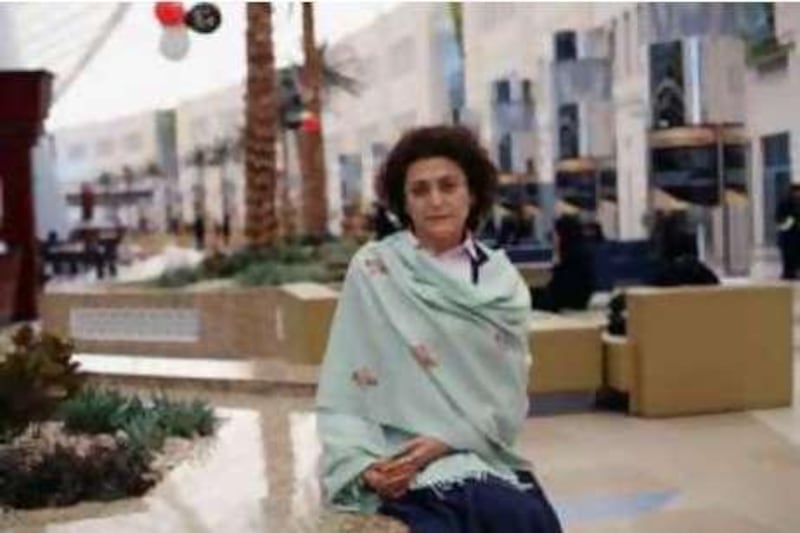As exam time looms, university students say the pressure on them to pass is so high that many are considering cheating. Such is the pressure from society and their families that some students even said their parents would not mind if they were caught cheating, only whether they passed or failed.
Universities such as the Sharjah Women's College are driving home the message that it is better to fail than cheat, both in and out of the classroom. But it is a looming battle across the country. There are few statistics to demonstrate the extent of the problem but Dr Rima Sabban, a sociologist at Zayed University in Dubai, said while cheating was a global phenomenon, there were many social factors that were "peculiar to the UAE".
Dr Sabban said as the importance of education had increased over the past 20 years and the job market had become more competitive, even for her fellow Emiratis, cheating had increased. "To sustain their position in the market place, they need to continuously develop their education," said Dr Sabban. The pressure on women to perform well is even greater than on men, whose only worry is to be able to provide for their families, she said.
"In Arab societies in general, there is more need to educate women as society is so much harsher for them," she said. "They need to be more equipped to face the struggles and inequality of life. To get married here, a wife has higher status if she's educated, more so in the developed societies of Dubai and Abu Dhabi. A good mother is an educated mother." Rashid Ali, 18, said students who cheated, which she reckoned was half of her classmates, "don't want to study, they don't care".
She added: "Parents just want them to pass, even if it means they have to cheat." Children from an early age are not taught to learn on their own, said Dr Sabban. Many of her students do not even know how to take notes in lectures nor manage information. Such key skills must be incorporated into the curriculum to ease the transition to higher education, which many find tough, Dr Sabban said. "Parents need to stop focusing so much on the grades and help the children to become independent learners," she said.
Of all forms of cheating, plagiarism, while common worldwide, is the most pervasive here, Dr Sabban said. Children are "pampered" and grow up in a society where "everything is easy", she said. At school, they copy work, a practice which she said is not always discouraged by teachers. "You need to socialise the whole society into learning and how to use all available information and the ethics of using someone else's information," Dr Sabban said.
Timothy Walters, a former lecturer at the American University of Sharjah (AUS), said the internet had made plagiarism easier. However, technology is also being used to overcome cheating. Zayed University uses SafeAssign, a computer software programme being used in more than 100 countries and available in several languages. AUS uses another program, called iLearn, and also offers SafeAssign to all faculty members.
The anti-cheating software works by trying to match the student's work against material on the internet - as well as against work submitted by earlier generations of students. Mr Walters said cheating had proved to be a slippery opponent over his nine years working in UAE universities, including Zayed University. "A lot of it has to do with helping family members," he said. "So it isn't viewed as cheating necessarily. We have never really been sure if people here really knew what cheating was.
"The main question to ask is: What is cheating? To different people, it means different things. It comes in a variety of forms which can be anything from helping someone with an assignment to paying people to complete projects." Fatma Khider, a marketing student at Abu Dhabi University, said: "If you cheat you're not going to achieve anything. "Ways of cheating have developed. They used to cheat in simple ways by looking at each other's paper or whispering to each other. Now they use signals, symbols and, whenever the doctor turns his head, they switch papers. People will communicate in exams with BlackBerries, mobile phones and use dictionaries nowadays."
As part of Abu Dhabi University's efforts to cut down on such trickery, students must attend a compulsory presentation on the consequences and meaning of cheating. Noha Hamedi, a marketing student, said students had tricked their way through exams, such as taking books, notes, papers, writing on their arms and using mobile phones "under the abaya and shayla". Now, an exam monitor searches the women to make sure they have neither written on their bodies nor are carrying mobile phones.
@Email:mswan@thenational.ae






